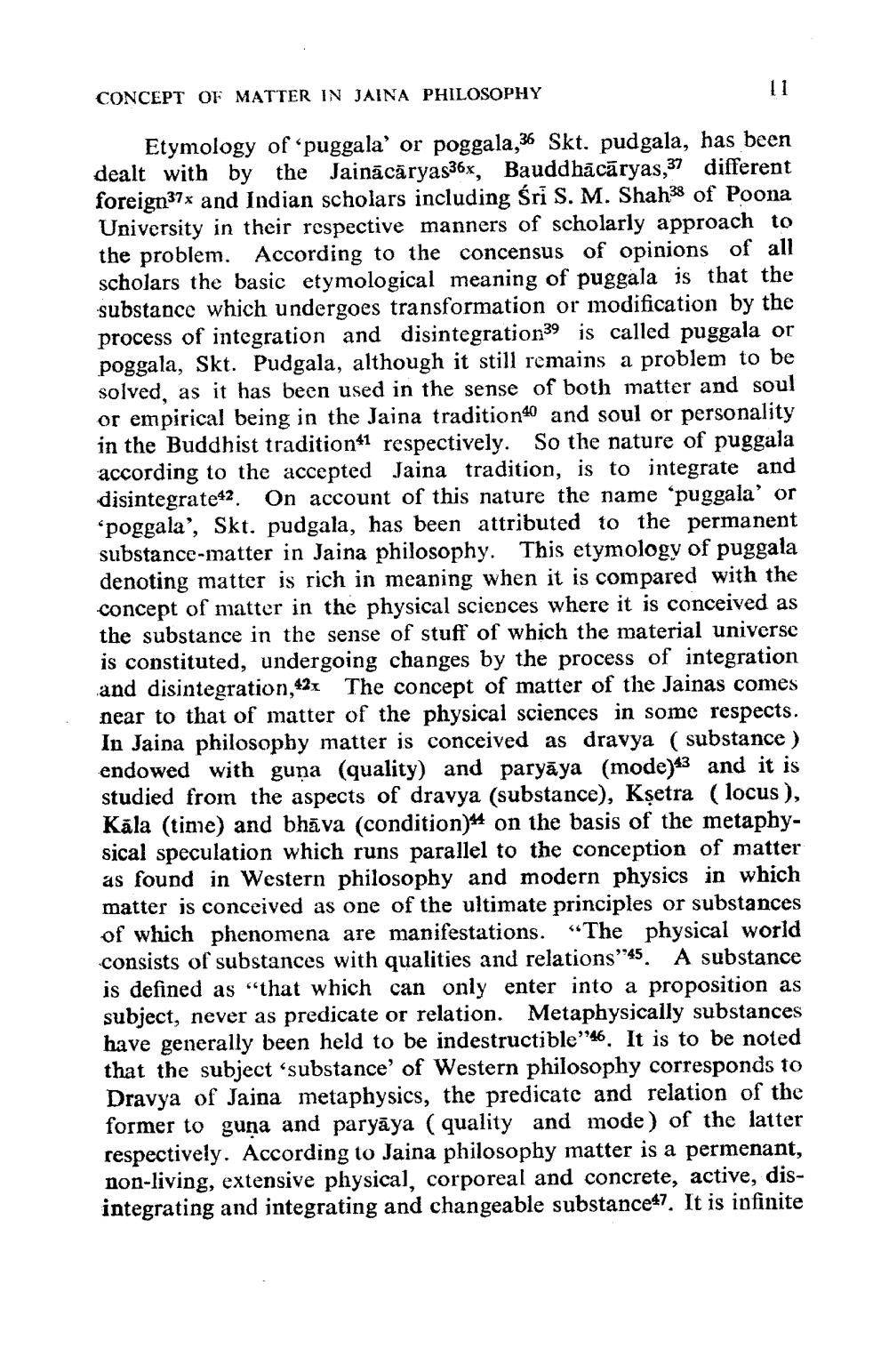________________
CONCEPT OF MATTER IN JAINA PHILOSOPHY
Etymology of puggala' or poggala,36 Skt. pudgala, has been dealt with by the Jainācāryas36x, Bauddhācāryas,37 different foreign37x and Indian scholars including Śri S. M. Shah38 of Poona University in their respective manners of scholarly approach to the problem. According to the concensus of opinions of all scholars the basic etymological meaning of puggala is that the substance which undergoes transformation or modification by the process of integration and disintegration39 is called puggala or poggala, Skt. Pudgala, although it still remains a problem to be solved, as it has been used in the sense of both matter and soul or empirical being in the Jaina tradition40 and soul or personality in the Buddhist tradition41 respectively. So the nature of puggala according to the accepted Jaina tradition, is to integrate and disintegrate42. On account of this nature the name 'puggala' or “poggala', Skt. pudgala, has been attributed to the permanent substance-matter in Jaina philosophy. This etymology of puggala denoting matter is rich in meaning when it is compared with the concept of matter in the physical sciences where it is conceived as the substance in the sense of stuff of which the material universe is constituted, undergoing changes by the process of integration and disintegration, 42x The concept of matter of the Jainas comes near to that of matter of the physical sciences in some respects. In Jaina philosophy matter is conceived as dravya ( substance) endowed with guna (quality) and paryāya (mode)43 and it is studied from the aspects of drayya (substance), Kşetra ( locus ), Kāla (time) and bhāva (condition) on the basis of the metaphysical speculation which runs parallel to the conception of matter as found in Western philosophy and modern physics in which matter is conceived as one of the ultimate principles or substances of which phenomena are manifestations. “The physical world consists of substances with qualities and relations'45. A substance is defined as “that which can only enter into a proposition as subject, never as predicate or relation. Metaphysically substances have generally been held to be indestructible”:46. It is to be noted that the subject 'substance of Western philosophy corresponds to Dravya of Jajna metaphysics, the predicate and relation of the former to guņa and paryāya ( quality and mode) of the latter respectively. According to Jaina philosophy matter is a permenant, non-living, extensive physical, corporeal and concrete, active, disintegrating and integrating and changeable substance47. It is infinite




